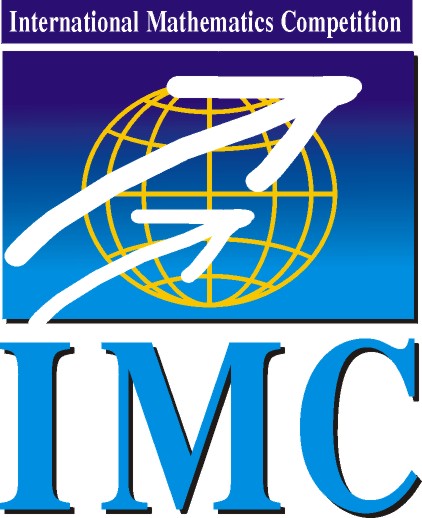
|
International Mathematics Competition
|
IMC 2024 |
| Information | Results | Problems & Solutions |
IMC2019: Day 1, Problem 5
Problem 5. Determine whether there exist an odd positive integer \(\displaystyle n\) and \(\displaystyle n\times n\) matrices \(\displaystyle A\) and \(\displaystyle B\) with integer entries, that satisfy the following conditions:
(1) \(\displaystyle \det(B)=1\);
(2) \(\displaystyle AB=BA\);
(3) \(\displaystyle A^4+4A^2B^2+16B^4=2019I\).
(Here \(\displaystyle I\) denotes the \(\displaystyle n\times n\) identity matrix.)
Proposed by Orif Ibrogimov, ETH Zurich and National University of Uzbekistan
Remark. The proposed solution was more complicated and involved; during the contest it turned out that a signficantly simplified solution exists – which we now provide below.
Solution 1. We show that there are no such matrices.
Notice that \(\displaystyle A^4+4A^2B^2+16B^4\) can factorized as
\(\displaystyle A^4+4A^2B^2+16B^4 = (A^2+2AB+4B^2)(A^2-2AB+4B^2). \)
Let \(\displaystyle C=A^2+2AB+4B^2\) and \(\displaystyle D=A^2-2AB+4B^2\) be the two factors above. Then
\(\displaystyle \det C \cdot \det D = \det (CD) = \det(A^4+4A^2B^2+16B^4) = \det(2019I) = 2019^n. \)
The matrices \(\displaystyle C,D\) have integer entries, so their determinants are integers. Moreover, from \(\displaystyle C\equiv D\pmod 4\) we can see that
\(\displaystyle \det C \equiv \det D \pmod{4}. \)
This implies that \(\displaystyle \det C\cdot \det D \equiv (\det C)^2 \pmod4\), but this is a contradiction because \(\displaystyle 2019^n\equiv3\pmod{4}\) is a quadratic nonresidue modulo \(\displaystyle 4\).
Solution 2. Notice that
\(\displaystyle A^4 \equiv A^4+4A^2B^2+16B^4 = 2019I \mod{4} \)
so
\(\displaystyle (\det A)^4 = \det A^4 \equiv \det (2109I) = 2019^n \pmod{4}. \)
But \(\displaystyle 2019^n\equiv3\) is a quadratic nonresidue modulo \(\displaystyle 4\), contradiction.
© IMC